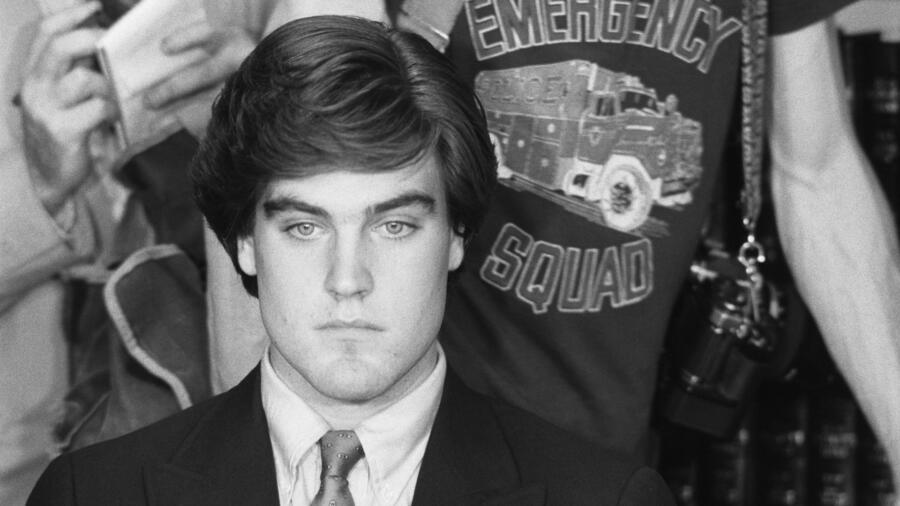Could a strapping prep school athlete have been so afraid for his life that he strangled his sex partner as an act of self-defense during a late-night tryst?
That was the question posed to jurors the winter of 1988, as details about the unusual death of Jennifer Levin two years earlier, inside New York City’s Central Park, wove their way around tabloids and TV. As the case hurtled toward trial, Robert Chambers was dubbed “The Preppy Killer ,” an allusion to the former altar boy’s good looks and the elite circles he once inhabited.
In reality, neither Chambers nor his victim, who was 18 at the time of her death, led the gilded lives the media would have us believe. He was raised by his mother, a nurse who once cared for JFK Jr., and attended prep schools, some —York, Browning, Choate-Rosemary Hall— on scholarship. His rap sheet prior to Levin’s death included petty crimes and credit card fraud.
Levin had recently relocated from Long Island to SoHo to live with her father and stepmother. She had been working as a hostess at a South Street Seaport bar while preparing for her first term at a Boston junior college.
The Murder of Jennifer Levin
In the pre-dawn hours of August 26, 1986, Chambers, then 19, and Levin, who knew each other casually, walked out of Dorrian’s Red Hand, an Irish-American bar on the Upper East Side. At 6-foot-5 and 220 pounds, he was nearly twice her weight, and almost a foot taller.
A few hours later, around sunrise, her partially unclothed body was discovered by a cyclist. It was riddled with cuts, bruises and bite marks. Her bra was wrapped around her neck. Chambers had, initially, remained on the scene, but left as police urged the crowd to thin out. He was tracked down quickly thereafter, once authorities interviewed patrons at Dorrian’s. He was charged with second-degree murder.
Within days, the teen’s attorney, Jack T. Litman, would lay the groundwork for a “blame the victim” defense that was a hallmark of his technique—insisting that, in this instance, Levin had been the aggressor. Chambers, on video, said the young woman’s death was an accident, and that he was defending himself because she injured him during their rough liaison.
If Levin’s death had, indeed, been an act of self-defense, then it would have been an aberration—the annals of American crime don’t include a lengthy list of sexual assault against men perpetrated by women. And statistics aside, few were inclined to believe Robert Chambers’ story.
“In more than 8,000 cases of reported assaults in the last 10 years, this is the first in which a male reported being sexually assaulted by a female,” Linda Fairstein, the chief prosecutor on the case, said during the trial.
Chambers remained free on bond in the months before a jury was assembled, in part because of the generosity of Jack Dorrian, owner of his family’s namesake pub. Chambers had gone to school with Jack’s son, Michael; Jack offered his Upper East Side townhouse as collateral for part of Chambers’ bail.
The Preppy Killer Trial
The trial lasted nearly three months. It included testimony from John A. Zaccaro Jr., a Dorrian’s bartender and son of the former Democratic vice presidential candidate Geraldine Ferraro, who said he didn’t recall Chambers or Levin being intoxicated the night of her death.
One witness characterized Levin as behaving in a “physically assertive” manner in coming on to Chambers. Another said that evening Levin was “definitely drunk.” Litman moved repeatedly (and, in the end, unsuccessfully) to gain access to Levin’s journal, implying it was a “sex diary” with writings that might exonerate his client.
To some extent, Litman’s strategy worked: On March 25, 1988, as the jury was in its ninth day of deliberations, Chambers unexpectedly accepted a deal, pleading guilty to first-degree manslaughter and agreeing to serve 5 to 15 years.
The lawyer’s “shame the victim” tactics enraged victims’ advocates and Jennifer Levin’s family. After the sentencing, Levin’s parents sued Chambers for $25 million in compensatory and punitive damages, which he did not contest. “The defense smeared her reputation quite unjustly. She was just fodder for them, because she was dead,” Fairstein said at the time.
A few weeks after the plea, the tabloid TV program “A Current Affair” broadcast video of Chambers mimicking the death of a doll by breaking its neck: “Oops, I think I killed her,” he says, in a mock falsetto. The tape had been made during a party that coincided roughly with the process of jury selection in his trial.
Robert Chambers’ Life Now
Chambers ultimately served a full sentence at Auburn State Prison in New York and, later, the Clinton Correctional Facility (also in New York), because of disciplinary missteps that included drug possession and assaulting a guard.
He was released on Valentine’s Day 2003. Just over a year later, he was arrested in Harlem on drug charges. There were similar offenses in 2005. Chambers in 2008 pleaded guilty to selling drugs from his midtown Manhattan apartment and was sentenced to 19 years.
Now 53, he is a prisoner at the Sullivan Correctional Facility, about 100 miles north of Manhattan, where fellow inmates include Ronald DeFeo Jr., whose crimes formed the basis for “The Amityville Horror.” The earliest Chambers can walk out is January 25, 2024.
In the years since the Central Park murder, Chambers has become a figure referenced across the landscape of pop culture. In the novel “American Psycho,” protagonist Patrick Bateman talks about starting a defense fund for the killer. Various TV series have based episodes and characters on him.
Ellen Levin coped with the loss of her daughter by becoming an advocate for victims’ rights and helping to write language that would be used in more than a dozen laws.
When Chambers left prison in 2003, at the end of his manslaughter sentence, she predicted: “If he continues along the course he’s been on, he will be his own worst enemy.”
“I think what Jennifer might be doing, what she would look like,” Ellen Levin said at the time. “I think about the grandchildren I won’t have. … And all that loss runs deep.”
[Update: In July 2023, Chambers was released from prison. He will be under supervision for five years, until July 2028.
Related Features:
The Murder of Travis Alexander and What Killer Jodi Arias’s Life is Like Behind Bars
Chris Watts, David Berkowitz and Other Infamous Killers Who Found God in Prison
The ‘Kayak Killer’ and Other Criminals Who Capitalized on Their Crimes


